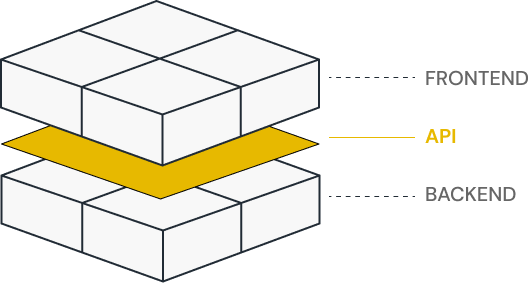Our Frontend As A Service offerings
New Alokai (Formerly Vue Storefront) composable storefront for SAP Commerce Cloud Stores Development
Build a brand new powerful & scalable Alokai (Formerly Vue Storefront) composable storefront integrated with your SAP Commerce Cloud store. Create a seamless, high-performing eCommerce experience from scratch using our composable front-end solution. Ideal for: Businesses looking to explore new storefronts for their SAP Commerce Cloud stores with tailored features and enhanced user experiences
Customizing existing Alokai (Formerly Vue Storefront) & SAP Commerce Cloud Stores
Tailor your existing Alokai (Formerly Vue Storefront) and SAP Commerce Cloud stores for enhanced user experience, new features & optimized performance with our customized & scalable frontend solutions. Ideal for: Businesses looking to optimize and personalize their current Alokai (Formerly Vue Storefront) and SAP Commerce Cloud stores to enhance customer engagement and drive conversions easier.
Standalone SAP Commerce Cloud to Composable SAP Commerce Cloud Migration
Seamlessly migrate your standalone SAP Commerce Cloud setup to a composable setup & enjoy the benefits of a composable Alokai (Formerly Vue Storefront) while preserving your existing SAP commerce cloud backend. Ideal for: Businesses currently using SAP Commerce Cloud and looking to transition to a architecture for increased flexibility, easier customization, Simplified integrations, and future-proofing.
Managed Support & Maintenace
Ensure the smooth operation of your composable storefront with our comprehensive managed support and maintenance services, including bug fixes, updates, and ongoing technical assistance. Ideal for: Businesses and organizations looking for hassle-free and reliable maintenance for their composable storefront, ensuring uninterrupted operations and optimized performance.
Hear from the Co-founder of Alokai (Formerly Vue Storefront)
Aureate Labs is without a doubt one of the most active and impactful partners in the Alokai (Formerly Vue Storefront) community. They’ve put a lot of effort to make our ecosystem stronger by proactively contributing to Alokai (Formerly Vue Storefront) core, releasing extensions, and building integrations. They have also proven multiple times that they can deliver high-quality storefronts which we can proudly show as great case studies.

Filip Rakowski Co-founder of Alokai (Formerly Vue Storefront)
Why choose Alokai (Formerly Vue Storefront) frontend for your SAP Commerce Cloud Stores?
Why hire us as your Frontend as a Service Partner for SAP Commerce Cloud composable storefront
-
Proven Track Record
Benefit from our extensive expertise as we have successfully delivered over 20 stores with Alokai (Formerly Vue Storefront)’s Frontend as a Service approach, ensuring a proven track record of excellence and client satisfaction.
-
Alokai (Formerly Vue Storefront) APAC Region Brand Ambassador
As the trusted brand ambassador for Alokai (Formerly Vue Storefront) in the APAC region, we possess in-depth knowledge and first-hand experience resulting in the full potential of Alokai (Formerly Vue Storefront) for e-commerce excellence.
-
Faster Project Execution
Experience rapid development and deployment with our efficient use of reusable modular components, significantly reducing design time and shortening your go-to-market timeline for faster releases.
-
Competitive pricing
Our strategic use of reusable components allows us to deliver efficient and cost-effective Frontend as a Service solution. Benefit from competitive pricing without compromising on the quality and flexibility of your composable storefront.
Industries we have served
Work with Hyvä developers who know the ins and outs of your industry. With our existing work portfolio, chances are high we have already worked in your niche.

Wholesale & Retail
We have experience handling wholesale and retail B2C commerces. If you have one of these stores, our experience will give you a headstart.

Home Decor and Furniture
The home decor and furniture business demands regular theme and functionality updates. You also need stunning visuals for conversion and a lot more to it. Our Shopify support experts already have the edge if this is your industry.

Health & Beauty
Health & beauty stores demand customization at its peak. Our Shopify web app solution ensures your health-based PWA store is well-customized for the users.

Fashion
Fashion trend demands regular update and the addition of product, category pages, and blog pages. As the store grows big, chances are high it will slow down and create duplicate pages. Our Shopify services experts have dealt with many such stores.
Best Magento Web Development Package For You
We offer flexible engagement models as we believe in delivering value for money to our clients & their specific needs. Our engagement approaches are crafted considering mutual interests in mind. What works for you works for us.
- Fixed Price Model
- Time and Material Model
- Dedicated Hiring Model
The fixed pricing model is the ideal option for projects with well-defined scope and needs. All project requirements are outlined from the start of the development process under this model. Small enterprises and medium-sized projects with limited or set budgets benefit the most from this arrangement. The project’s key objectives and deliverables are also pre-defined, in addition to the time and cost.
- The fixed model has a predetermined budget.
- Invoice and Payment is based on completed milestones.
- Client approval is required for scope changes to ensure the budget never exceeds.
- Low or no risk approach for service provider and customer because cost and deadline are set before the project begins.
- Step #1 Client’s Project Requirements
- Step #2 Requirements Analysis & Value Additions
- Step #3 Customer Feedback & Project Scope Finalization
- Step #4 We Propose Deliverables, Budget and Timeline
- Step #5 Project Approval & Onboarding
- Step #6 Project Delivery
Crafting success stories across the globe
No client is small or big for us. We understand where you are on your commerce journey and provide continuous support to achieve your goals. We have built & shipped stores and also rescued many for which we received tons of praises and goodies from our clients.
What is Composable Commerce?
Composable Commerce is a way of building custom online stores by combining or composing the finest commerce components like a building blocks.
It is similar to creating a customized store by selecting specific features you need, like shopping carts, promotions, and user management, from various third-party sources. Instead of depending on a single provider for an all-in-one solution, you can combine these specialized components to build a unique and tailored shopping experience for your business.

What is the difference between composable commerce and traditional commerce?
Architecture
From an architectural standpoint, Composable Commerce relies on a modular design, where individual components can be easily integrated into the platform. On the other hand, traditional commerce platforms typically relies on a monolithic architecture, where all functionalities are tightly interconnected with the platform.
Customization & Flexiblity
Composable commerce’s decoupling of the front end enables support for diverse experiences, such as web, wearables, native apps, or in-store kiosks. Traditional commerce is more limited in supporting experiences beyond conventional web-based ones.
Scalability and Agility
Composable commerce allows independent scaling of each component, ensuring efficient resource allocation based on specific needs. In contrast, traditional commerce often requires scaling larger portions of the stack collectively, leading to suboptimal resource allocation.
Time to Market:
Composable Commerce offers a quicker time-to-market compared to traditional commerce due to its modular architecture, which leverages pre-built and specialized components from various vendors. This approach allows businesses to focus on their unique aspects and tailor the online store without starting from scratch. On the other hand, traditional commerce solutions often entail longer development times and may lack the same level of innovation due to their standardized and inflexible nature.
Vendor Dependency
Composable Commerce reduces vendor depnedencies by minimizing vendor dependencies and allowing easy replacement of components. Traditional commerce, relying on a unified platform from a single vendor, creates a higher level of vendor dependency, making migration or switching to alternative solutions more challenging.
Security and Data Privacy
Composable commerce requires robust security measures due to integrating multiple components and services, demanding stringent access governance. Traditional commerce, managed by vendors, may offer tighter security and data privacy controls.
What is the difference between composable commerce and headless commerce?
-
Composable commerce and headless commerce are similar but have a key difference between the two.
-
Headless commerce involves separating the frontend stack from the backend, allowing for more flexibility and independence for developers. It liberates businesses from the limitations of a traditional eCommerce platform’s front-end capabilities, enabling front-end developers to work autonomously without relying on back-end teams.
-
On the other hand, composable commerce takes the flexibility of headless solutions to the next level. While headless architecture can still have limitations due to business logic within the monolithic main platform, composable commerce focuses on an API-first approach. This means that the system’s components can communicate through APIs, creating complex business solutions.
-
The true power of composable commerce lies in its ability to have independent pieces, allowing for easy replacement or modification of individual components without affecting the rest of the system.
Frequently Asked Questions
How can Alokai (Formerly Vue Storefront) and SAP Commerce Cloud be used together for e-commerce?
Alokai (Formerly Vue Storefront) with SAP Commerce Cloud to create a dynamic e-commerce solution. When you use Alokai (Formerly Vue Storefront) as a ready-made frontend setup with SAP Commerce Cloud, you get the freedom to choose between React, Vue, or other JavaScript frameworks. This combination leads to better website performance, faster development, and a smooth shopping experience for your customers.
How long does it take to develop a front-end platform using Alokai (Formerly Vue Storefront) for SAP Commerce Cloud?
The development timeline for a Alokai (Formerly Vue Storefront) frontend platform for SAP Commerce Cloud depends on the project’s intricacy, the level of customization required, and Alokai (Formerly Vue Storefront) developer experience. But with our expertise, we can expedite the development process, allowing you to launch a new Alokai (Formerly Vue Storefront) frontend for SAP Commerce Cloud within just 8 weeks, ensuring a rapid start and efficient go-to-market strategy.
What is the cost of implementing a Vue Storefront for SAP Commerce Cloud?
The cost of implementing Alokai (Formerly Vue Storefront) for SAP Commerce Cloud can vary depending on different factors. Typically, it includes expenses for Alokai (Formerly Vue Storefront) licensing, hosting services (optional), and implementation charges. As a development partner, our implementation charges start from $15,000. However, the charges for Alokai (Formerly Vue Storefront) and hosting can be discussed directly with the Alokai (Formerly Vue Storefront) team. Additionally, we can assist you in understanding and procuring Alokai (Formerly Vue Storefront) licenses and hosting charges, if required.
Get in touch and get started today. We're ready!
Thank You!
We are reviewing your submission, and will be in touch shortly.